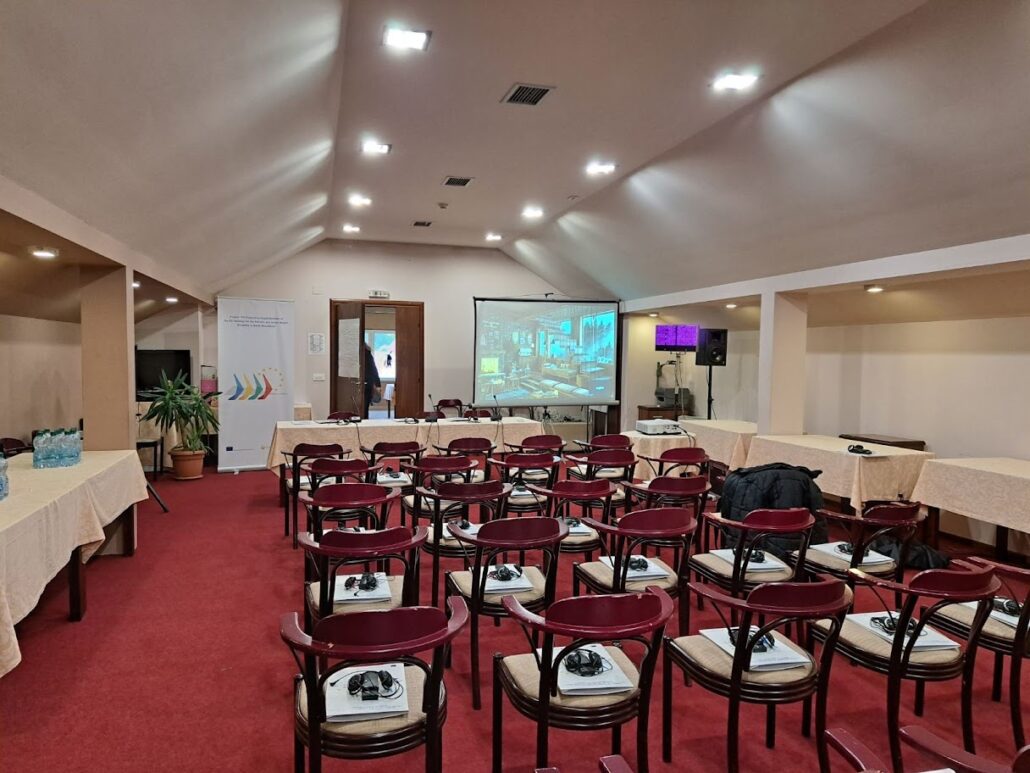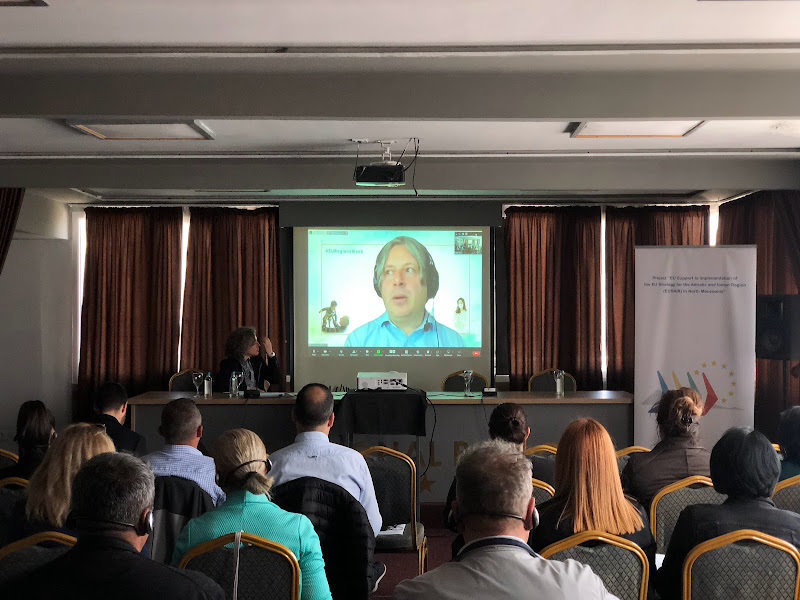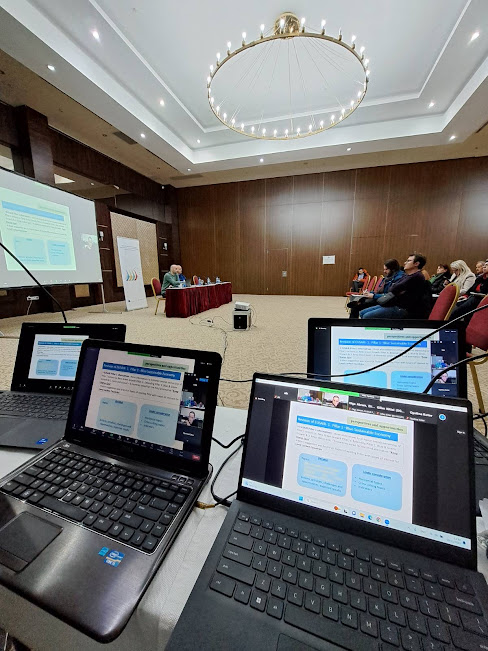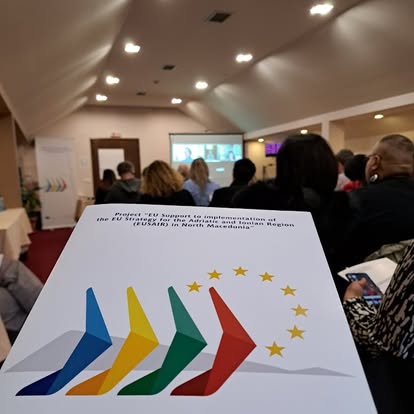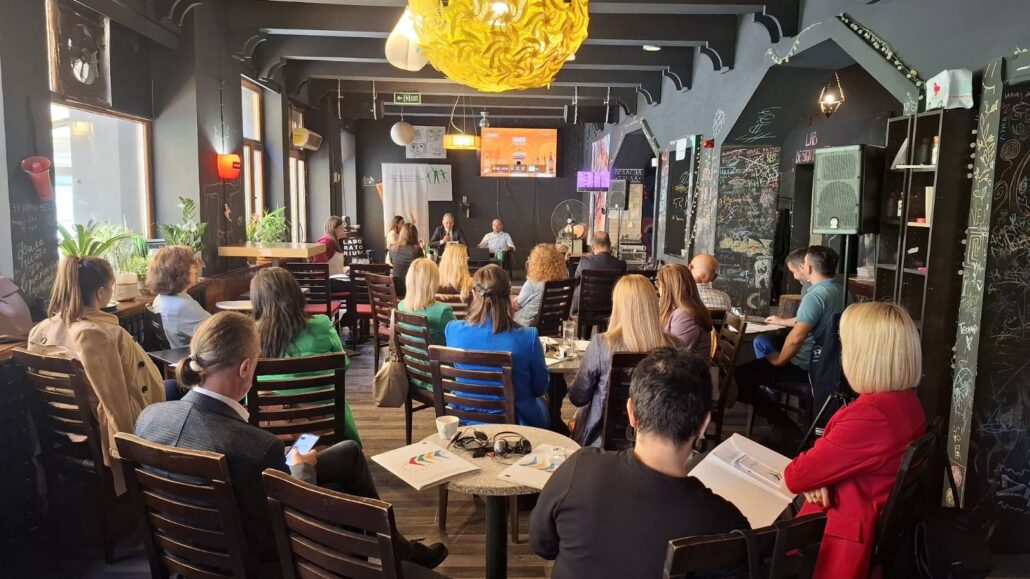NORTH MACEDONIA – THE FIRST NEWCOMER IN THE EUSAIR’s FAMILY
The greatness of the EU macro-regional strategies is that they are open—open to new members and open to the future. Among the four existing EU macro-regional strategies, EU Strategy for the Adriatic and Ionian Region (EUSAIR) has established itself as the fastest-growing; North Macedonia joined in 2020, and San Marino followed in 2022. This reflects the Strategy’s attractiveness, suitability, delivery mechanisms, and performance.
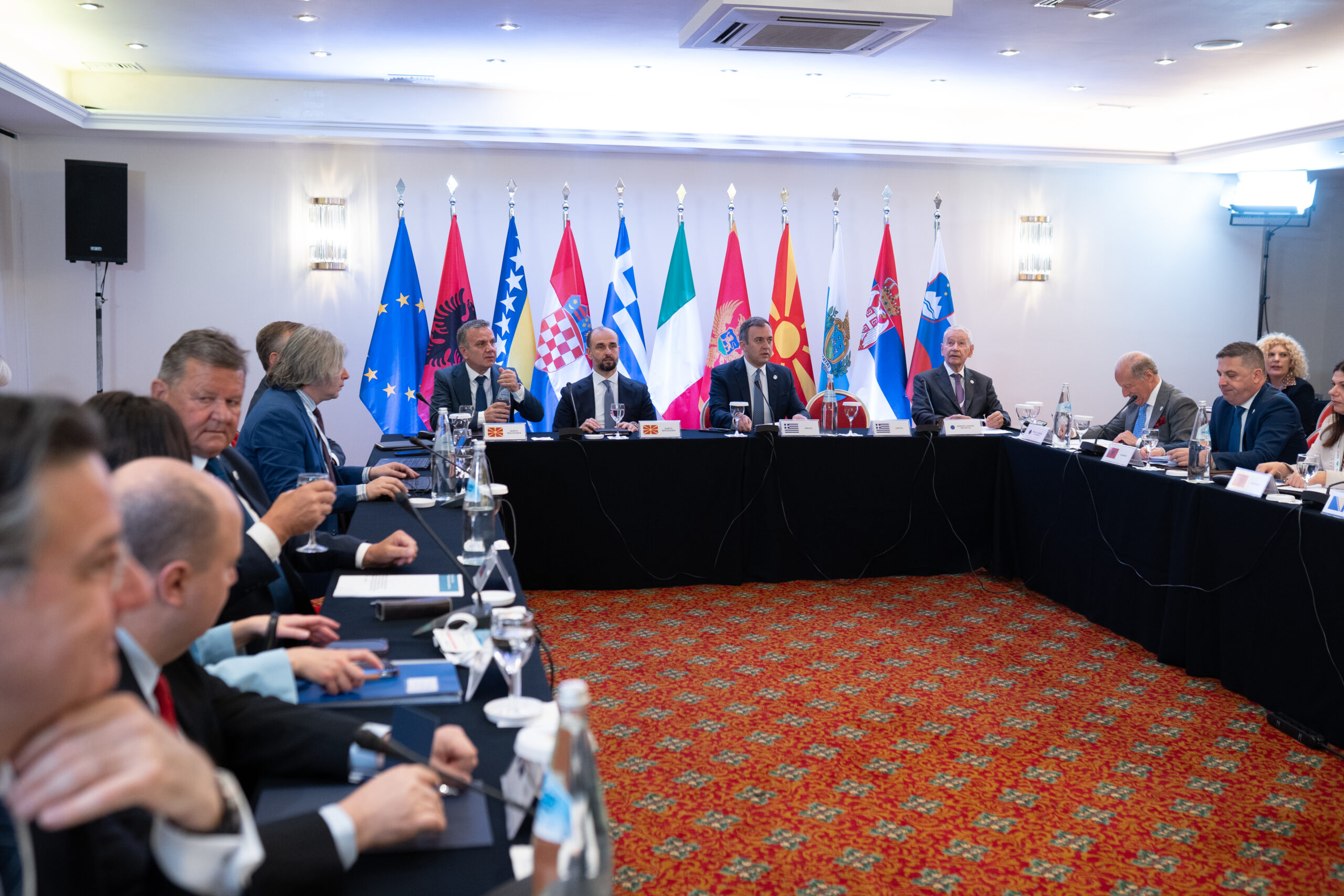
By including North Macedonia in 2020 as the ninth member of EUSAIR, the Strategy gained its distinctive and recognisable feature, setting it apart from other EU macro-regional strategies: the predominance of non-EU member countries and EU candidate countries (then five, now six) in relation to EU member states (four).
Compared to the long-term accession process to the European Union, the process of accession to full EUSAIR membership lasted less than two years: The Adriatic and Ionian Council / EUSAIR Ministerial Meeting of 24 May 2018 approved, in its Catania Declaration, the request submitted by North Macedonia to become the Participating Country of the Adriatic and Ionian Initiative (AII), and invited the Council of the European Union and the European Commission to undertake all necessary steps to include it in EUSAIR. From 2 April 2020, North Macedonia officially became the ninth member of the EUSAIR’s family.
For context, North Macedonia applied for EU membership in March 2004, and was granted candidate status in December 2005. Accession negotiations formally began in July 2022, which launched the screening process.
With the inclusion of North Macedonia, a country that geographically and traditionally belongs to the Adriatic and Ionian region, EUSAIR’s family increased by 2 million inhabitants and expanded its area of influence, actions, and implementation by 25 713 km². Even more importantly, the accession of North Macedonia connected EUSAIR participating countries: Serbia — bordered by North Macedonia to the south, Albania to the east, and Greece to the north — creating a contiguous area of territorial influence. This is particularly significant for the continuity of infrastructure: interconnected, sustainable transport and energy networks across the entire Adriatic-Ionian (AI) region.
And while in 2014 EUSAIR marked the beginning of a collective journey for the eight countries of the Adriatic-Ionian region towards a more prosperous and inclusive common future, based on a shared vision and a desire to pool resources along the way – albeit with uncertain outcomes – the newcomers to EUSAIR in 2020 and 2022 were in a much stronger position with clearer insights into what EUSAIR brings or takes away from the participating countries, especially those not formally part of the European Union.
Therefore, their demands for membership are founded not only on a shared vision, priorities and objectives set, but also on visible and tangible achievements of the Strategy implementation and the benefits that are recognised for the participating countries.
The Western Balkans is a region where the European dream remains deeply rooted in the heart
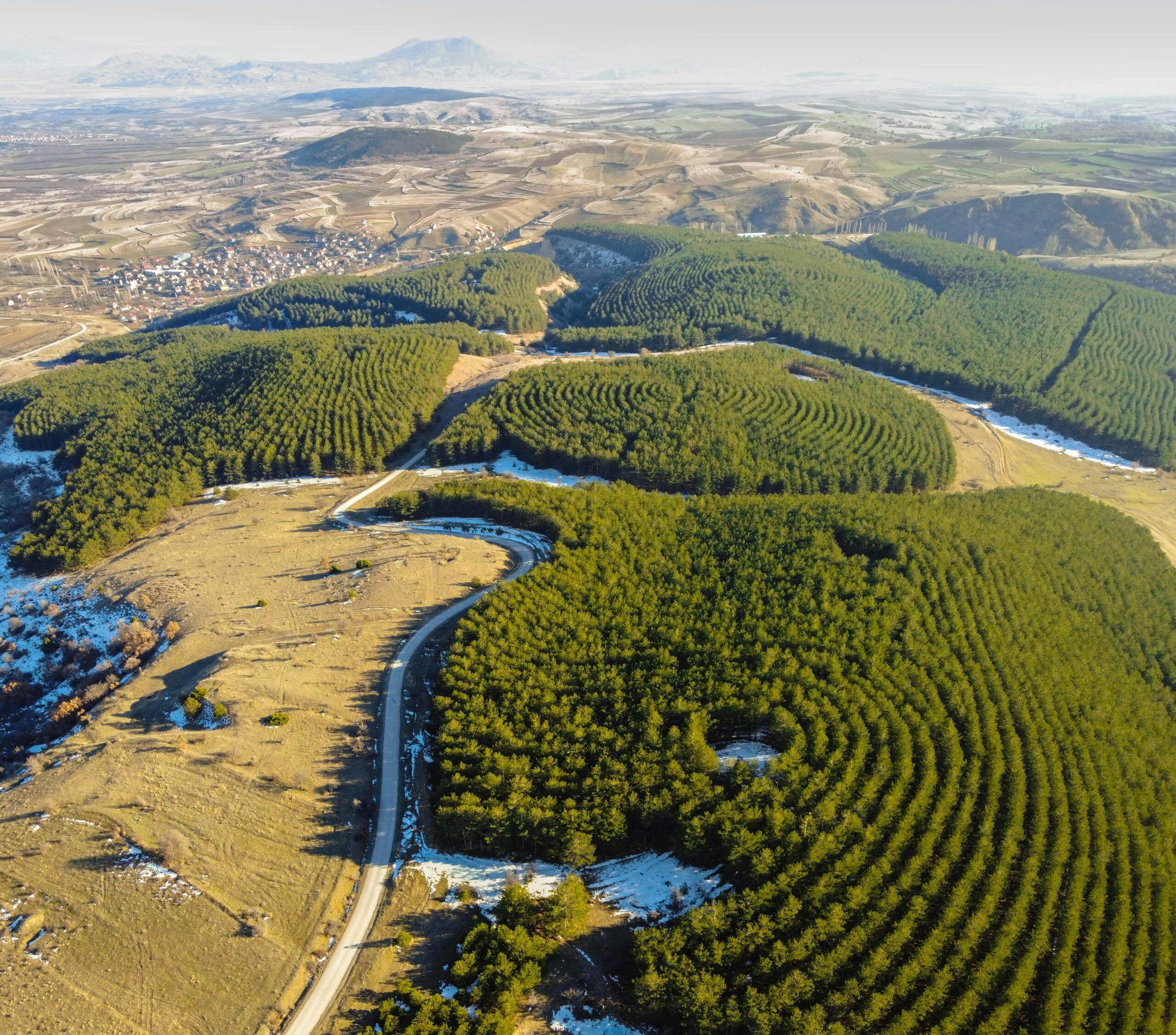
Why is EUSAIR so attractive to the countries of the Western Balkans, and what has drawn North Macedonia to join? Perhaps one of the best explanations is found in the statement by Gilles Kittel, representative of European Commission DG REGIO in an interview published on westernbalkans-infohub.eu, as well in the statement by the Minister of European Affairs of the Republic of North Macedonia, Orhan Murtezani.
“Macro-regional Strategies like EUSAIR are effective and cost-efficient tools for harmonising practices and policies, providing an excellent way to find common solutions to problems, compared to when individual countries tackle issues alone. For countries that are not yet EU members, the macro-regional approach is stimulating, as participation in decision-making and policy formulation allows them to develop a sense of belonging more quickly and gradually than through the longer accession process, which requires much more effort at each step towards membership,”
EUSAIR ensures and promotes European values in the Western Balkans while extending relevant EU policies to the region, thereby reinforcing the transformative power of the European Union. EUSAIR strongly supports the EU enlargement policy in the Western Balkans, particularly in policy alignment and institutional capacity-building.
The inclusion of North Macedonia in EUSAIR contributes to the EU enlargement efforts in the Western Balkans, as well as to regional cooperation and good neighbourly relations.
“The Western Balkans is a region where the European dream remains deeply rooted in the heart. For us, integration is not merely a chapter of foreign policy; it is the story of a generation. Strategies like EUSAIR are not just secondary mechanisms, but vital bridges leading towards the realisation of that goal,”
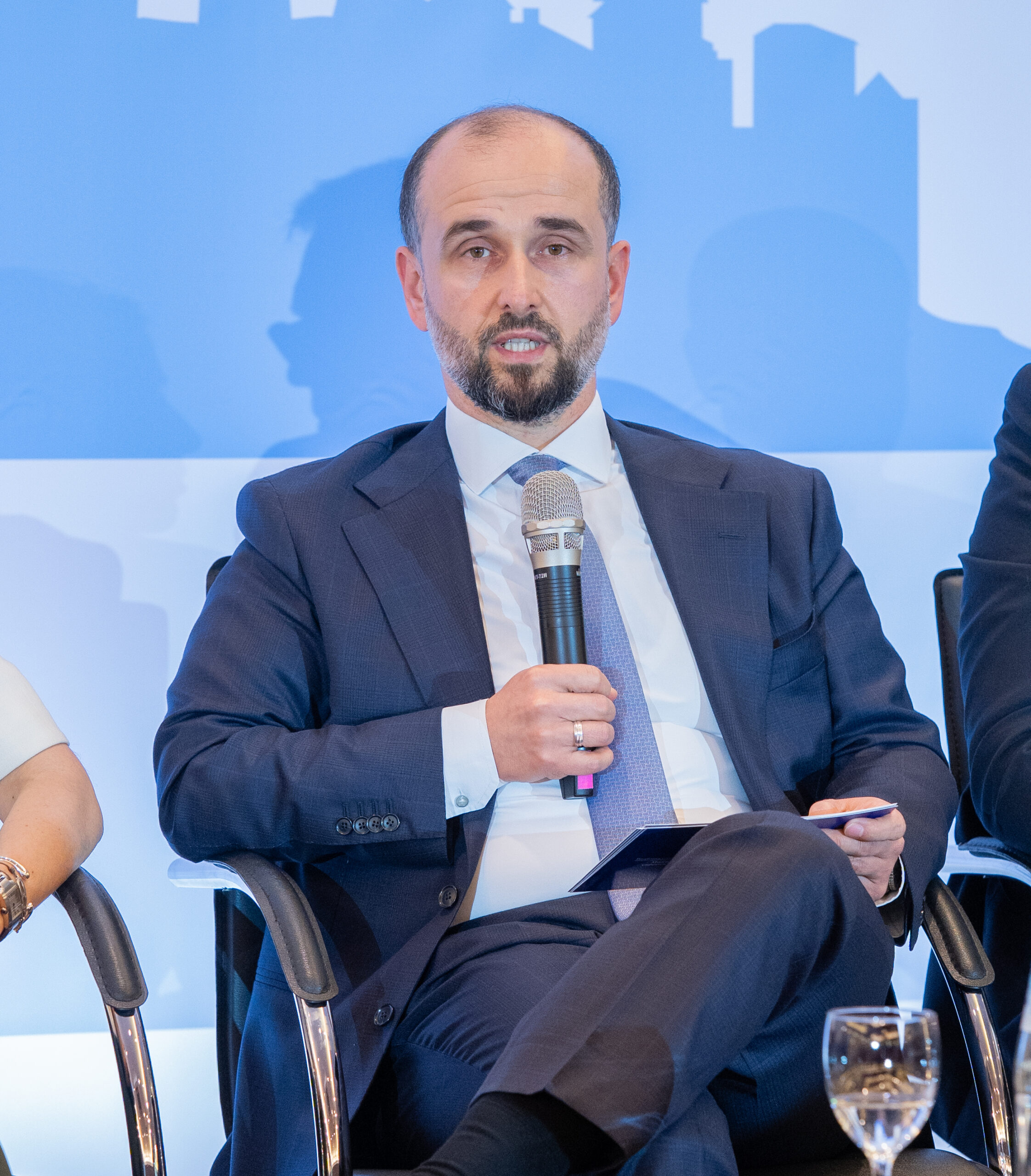
Cohesion Policy, a pillar of the European integration and driver of changes
According to the Ministry of European Affairs of North Macedonia cooperation is the “heart and essence” of solidarity, promoting mutual understanding and sustainable regional development. Cohesion policy is “a pillar of European integration, driver of change”, and EUSAIR & Interreg IPA programmes are among its key instruments.
“The commitment to promote cooperation, build bridges, and take down barriers created by borders is at the foundation of the European project. It is also the fundamental task of the cohesion policy, as a pillar of the European integration and driver of changes. The programmes for territorial cooperation offer unique opportunities for tackling joint challenges and building capacities at all levels, but additional engagement is necessary in terms of aligning the legislation, drafting national strategies and strengthening capacities – especially on a local level,”
By means of cooperation and coordination within EUSAIR, North Macedonia has deepened its experience with EU policies. Its key implementers have been actively involved in shaping the future of the entire AI region through their participation in the revision of the EUSAIR Action Plan. For North Macedonia, participation in EUSAIR also involves collaborating and coordinating with other countries in the region in planning national and EU funding (Instrument for Pre-accession Assistance (IPA), European Territorial Cooperation (ETC)), as well as other available sources of funding to implement the EUSAIR Action Plan.
“During the past 10 years, we have witnessed the evolution and growth of the Strategy. The most significant proof of this development is the revised Action Plan and the establishment of an additional Social pillar. Social cohesion is not merely a side effect of accession; it is its driving force. We cannot speak about accession if we cannot ensure people to believe that there is hope if they stay on the play. If we put a lot of effort in this 5th pillar, then it will serve a purpose, ”
At the very start of its EUSAIR membership, and in the middle of the Corona pandemic, North Macedonia successfully participated as the youngest EUSAIR’s country in organising, alongside the Republic of Slovenia, a traditional organiser of the event, the main regional event for environment-related transnational cooperation — the 6th Mediterranean Coast and Macro-regional Strategies Week. The event was held in September 2021 and gathered through the EUSAIR Stakeholder Platform a large number of participants and speakers.
“The joint event brings an entirely new dimension – EU and non-EU country, hand in hand jointly organising serious of events, discussions, and exchange of views, strengthening bonds among European countries. This would not be possible without the indispensable facilitation role of EUSAIR Facility Point, both at the Government office for development and cohesion policy and in Izola. And this is why EU macro-regional strategies are recognised as laboratories for the new Europe. We are inclusive, we build on mutual trust, we are future-oriented, and we bring progress to the region, on the ground, to the people,”
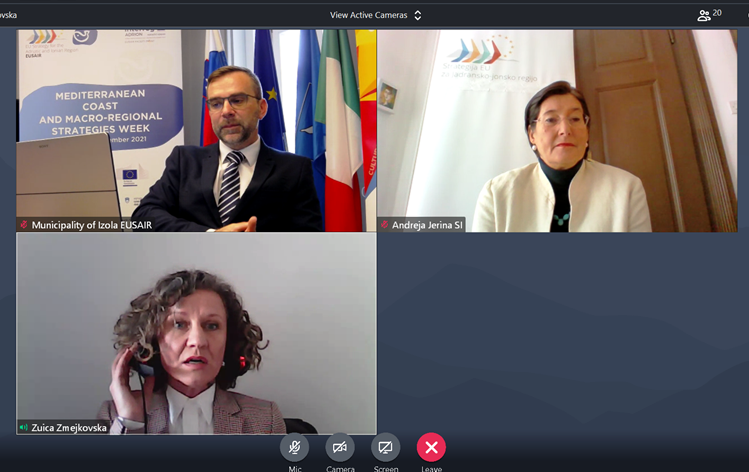
Connectivity is not limited to transport or technology, it is about bridging ambition with opportunity
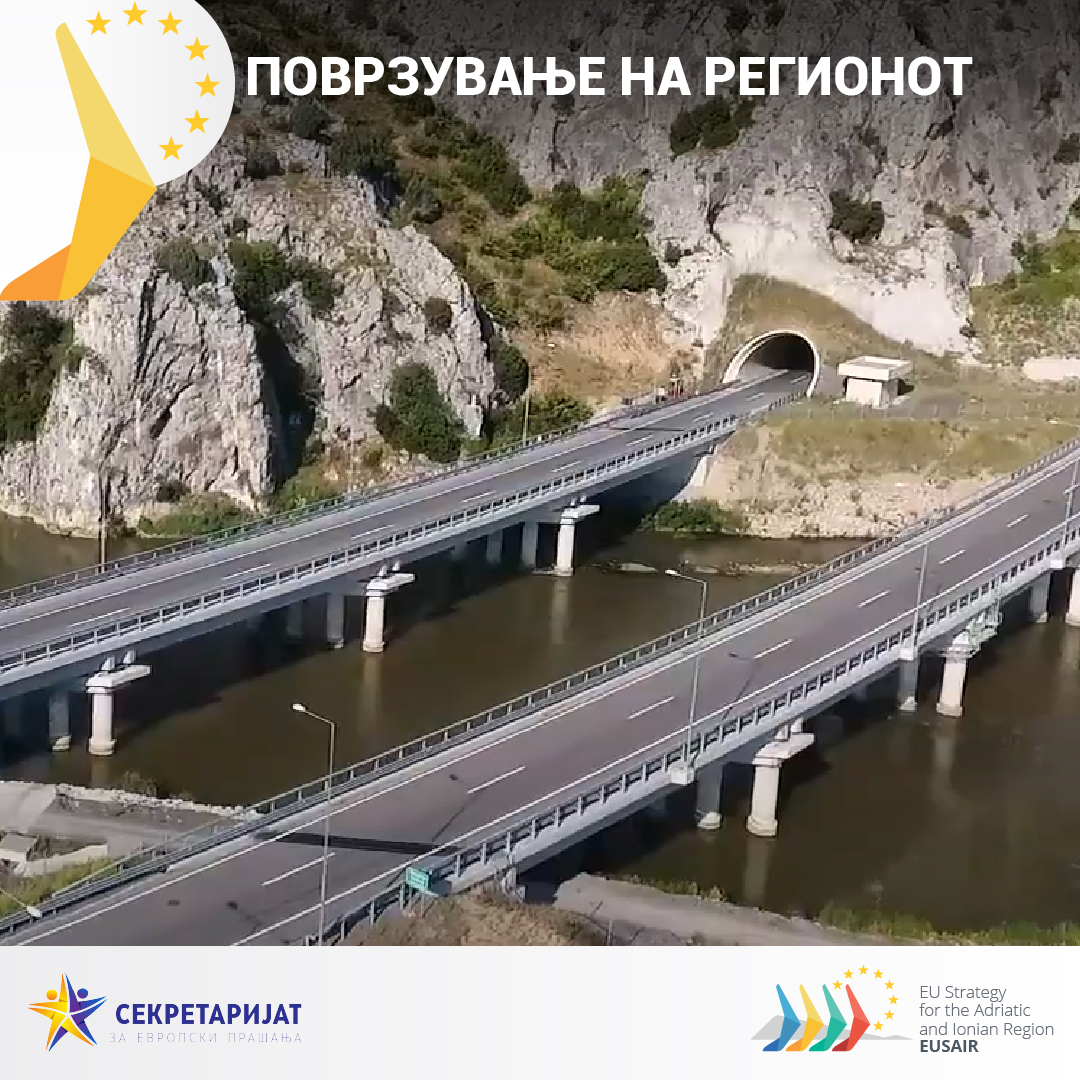
North Macedonia participates in all EUSAIR governance structures, with a coordination role in Pillar 2 (Connecting the Region), together with Italy and Serbia.
The Adriatic-Ionian area is known as one of the most heterogeneous and challenging regions of Europe in terms of transport and energy infrastructure. The actions of Pillar 2 (with its Transport group and Energy group) focus on improving connectivity and the integration of transport modes and technologies, building new transport corridors, and developing sustainable energy networks across the entire Adriatic-Ionian Region.
“The responsibility to coordinate EUSAIR’s connectivity pillar, together with Italy and Serbia, is a privilege entrusted to North Macedonia. We intend to justify this trust by proactively promoting the functional integration of the transport and energy networks both within the region and across the EU. Better transport and energy connections are pivotal for economic and social development, but tangible results can only be achieved with a cooperative and coordinated approach to address challenges and harness opportunities,”
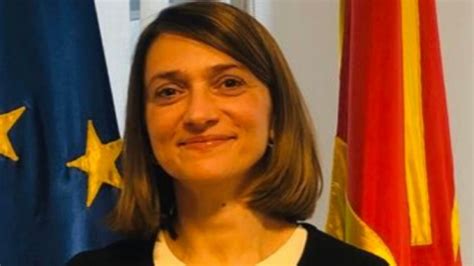
As a coordinator of this pillar, North Macedonia has made significant contributions to defining priorities, policies, and projects in these areas. The EUSAIR Master Plan of Transport and the EUSAIR Master Plan on Energy Networks, developed within EUSAIR Pillar 2, represent the current framework and will shape the future of transport and energy in the Adriatic-Ionian Region.
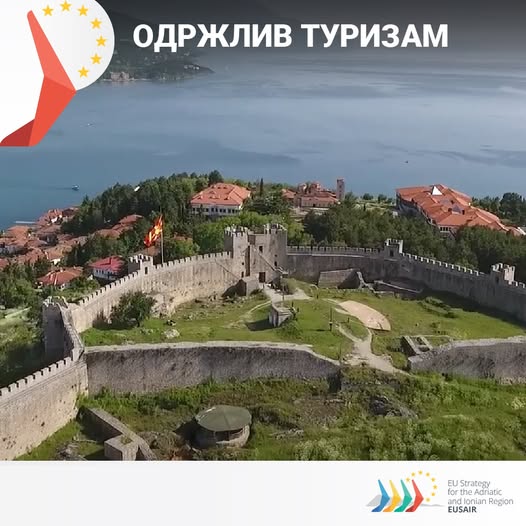
North Macedonia possesses resources and significant potential for the development of rural, cultural, and active tourism. The high mountains, rivers, and numerous lakes form the natural resource base for sustainable and active continental tourism. This requires good and wise management to fully realise their potential for the benefit of the local community. Therefore, participation of North Macedonia in EUSAIR Pillar 4 – Sustainable Tourism – is of great importance for this process, particularly through strengthening institutional capacities in this area. It has also had a notable impact on the development of the new National Tourism Development Strategy, as well as on numerous joint cross-border and transnational tourism projects co-funded by European funds, in which North Macedonia has participated as a project partner.
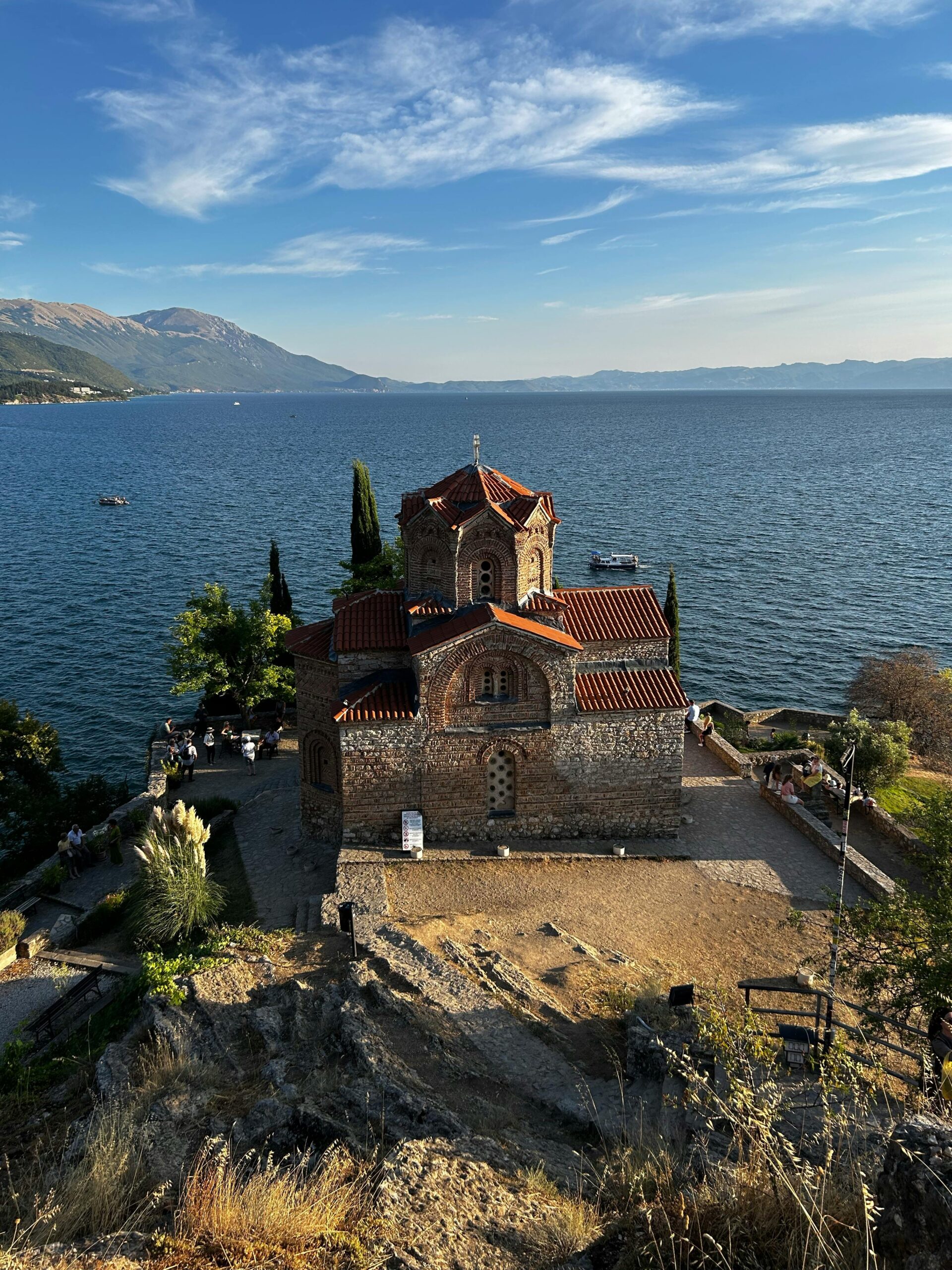
Lake Ohrid, not only is the part of the Natural and Cultural Heritage of the Ohrid Region listed as a UNESCO World Heritage site, and alongside Skopje serves as a centre of Macedonian tourism, but it also dates back to the pre-glacial era and provides a unique refuge for numerous endemic and relict freshwater species of flora and fauna that should be protected. Consequently, participation in thematic Pillars 1 and Pillar 3 is important for capacity building in these areas, namely the Blue Sustainable Economy and Environmental Quality.
“For us, connectivity is not limited to transport or technology, it is about bridging ambition with opportunity,”
Project “EU support for the implementation of the EU Strategy for the Adriatic-Ionian Region (EUSAIR) in North Macedonia”
Capacity building among EUSAIR key implementers of North Macedonia, along with awareness-raising initiatives, thematic events, training programmes, and seminars for stakeholders is a prerequisite for effective implementation of the EUSAIR and its Action Plan. Therefore, the European Commission, the Directorate-General for Regional and Urban Policy (DG-REGIO) has provided funding, and Ministry of European Affairs of the Republic of North Macedonia has implemented the project “EU support for the implementation of the EU Strategy for the Adriatic-Ionian Region (EUSAIR) in North Macedonia”.
The project was firstly planned to be conducted in 2023–2024, and financial support was directed to national key implementers to enable them to operate on a level playing field with all other countries. In particular, technical support was designated for national EUSAIR Pillar Coordinators to implement EUSAIR Pillar II in collaboration with fellow EU Member State administrations participating in EUSAIR. That included support by allocating full-time thematic experts for each respective EUSAIR pillar (Transport and Energy): one thematic expert supported the Transport Sub-pillar Coordinator within the Ministry of Transport and Communications, while another supported the Energy Networks Sub-pillar Coordinator within the Ministry of Economy.
North Macedonia, as a new EUSAIR participating country, was also supported through the project by assisting with day-to-day governance work and processes for meetings of the Governing Board, Thematic Steering Groups, Pillar Coordinators, as well as on inter-Pillar coordination and participation in EUSAIR Forums and other relevant EUSAIR events.
In addition to these capacity-building activities for key implementers, eight regional, and three thematic events, involving approximately 400 participants, were organised within the project in 2023-2024 period with the aim to promote macro-regional strategies, raise awareness, foster understanding, and encourage support and active involvement from the Strategy’s stakeholders.
These activities have contributed to developing a sense of ownership regarding EUSAIR, strengthening regional identity, and promoting partnership and networking across the region.
Within the project, an international conference “Empowered Territorial Cooperation as a Pathway Towards Sustainable Regional Development in the Adriatic-Ionian Macro-Region” was held in December 2024, with the participation of a wide range of stakeholders.
https://web.facebook.com/share/v/17Adt1Ajbe/
The project was extended until 2026 in order to support the first North Macedonia Presidency of EUSAIR, during its preparatory and execution phases.
EUSAIR Presidency 2025-2026
During the 10th Forum of the EU Strategy for the Adriatic and Ionian Region, held in May 2025 in Crete under the Hellenic Presidency, North Macedonia assumed the one-year EUSAIR Presidency from Greece. Minister Murtezani highlighted regional connectivity as one of the presidency’s key priorities.
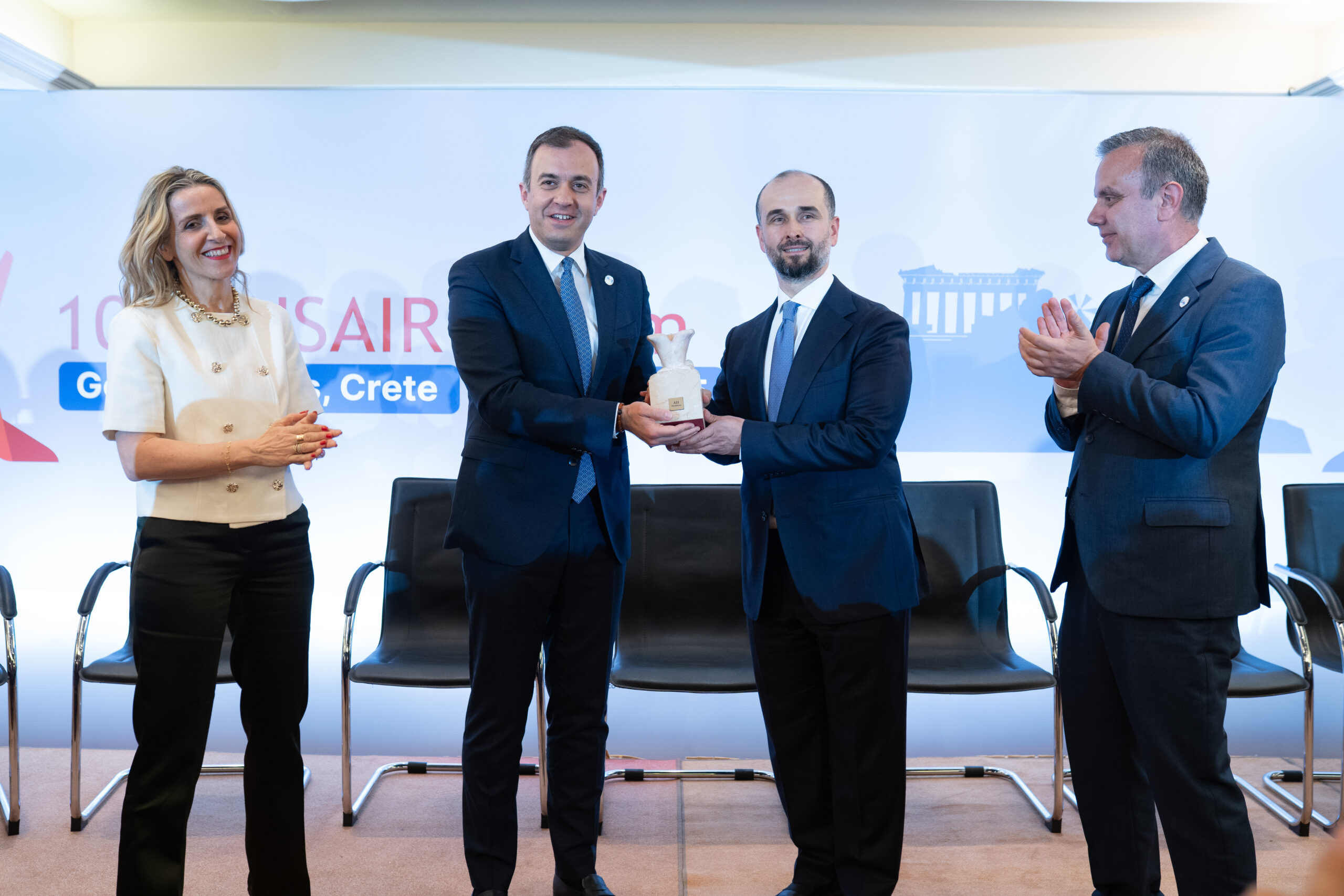
“This is a historic moment for North Macedonia. For the first time since joining both the EU Strategy for the Adriatic and Ionian Region (EUSAIR) and the Adriatic – Ionian Initiative (AII), we are assuming the Presidency. This transition, which comes five years after joining the Strategy and seven years after entering the Initiative, represents a natural and deserved step forward on a journey built by partnership and steadfast commitment. We take on this role fully aware of the responsibility we are assuming and with a clear commitment to lead in an inclusive manner. The Hellenic Presidency did a great job keeping the enlargement constantly a key topic. We think that it has to be additionally linked to the regional initiatives, especially with the pillar Common Regional Market and reform agendas. By putting additional efforts on these two topics, we believe that each step brings us closer to achieving our strategic goals. Within our coordination with Pillar 2 – Connecting the Region, we will focus not only on building infrastructure but also on building trust,”
In assuming the Presidency, North Macedonia will build on the positive work and best practices established by the previous presidencies. At the same time, it will aim to leave its own mark for the presidencies that will follow and act as a driving force for the cooperation in the Adriatic and Ionian Region, contributing thus for a better life for its citizens. Strengthened cooperation and constructive dialog are of outmost importance for tackling the social, political and economic challenges imposed in the recent years, which have undoubtedly affected the Adriatic and Ionian Region as well.
Read the detailed description of the North Macedonia EUSAIR Presidency programme in the following document MK priorities EUSAIR and AII .



